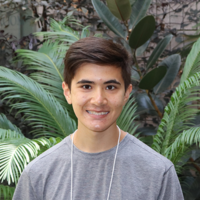
Project Summary:
Watermelon (Citrullus lanatus) is a prevalent crop in many countries thanks to its high nutritional value and refreshing taste. Despite this popularity, it is still challenging to successfully cultivate watermelons with negligible crop loss. This is due in part to watermelon’s narrow genetic diversity caused by a domestication bottleneck which leaves it vulnerable to various diseases. Wild species within the Citrullus genus have exhibited resistances to some of the most important diseases. Effectively hybridizing cultivated watermelons with the wild forms could offer opportunities to create a more resistant crop. To successfully utilize the genetic diversity preserved in the wild watermelons and guide efficient selection of breeding materials that carry beneficial traits, analysis on gene presence/absence variations (PAVs) was performed in 480 watermelon accessions belonging to cultivated watermelon and three wild relatives, C. mucosospermus, C. amarus and C. colocynthis, with a super pan-genome capturing genes existing in different watermelon species. Characterizing gene PAVs in the watermelon super pan-genome demonstrated the divergence among the wild and cultivated watermelons. Through comparative analysis, functionally important genes with significantly changed occurrence frequencies between the wild and cultivated watermelons were identified. These included disease resistance genes that were lost in the cultivated watermelon and could be brought back from the wild watermelons.
My Experience:
I learned a lot during my time working in Fei lab. I acquired a variety of technical skills such as working in Linux environments and writing scripts in R, while also being able to expand upon previously developed skills, namely Python and Bash. Learning how to use bioinformatics tools like samtools and Blast2GO was interesting and gave me further insights on the nuances of genetics. This internship also served as an introduction to the scientific community. The symposiums, other lectures, and lab work all showed me common practices and skills used in research while also greatly broadening my knowledge of plants. Overall, this was a very positive and informative experience that served as a great introduction to professional research. Lastly, I would like to thank my mentor, Shan Wu, for teaching me many of the skills I’ve acquired while at BTI and Dr. Fei for giving me this opportunity.
